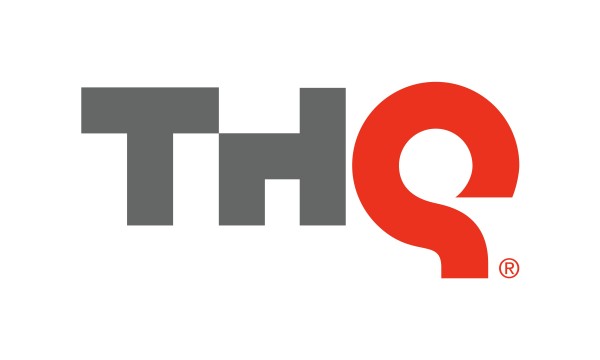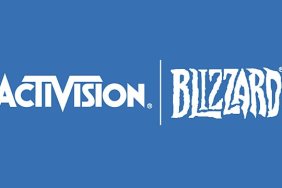When someone gets really angry, they do a number of different things to release that anger in a healthy way: talking it out with friends; writing their thoughts down; going to a counselor. Trouble is, when the company you were just fired from still owes you money, a counselor can be a little out of reach. The cost of a stamp or, in this case, an e-mail can seem so much more obtainable.
That's what happened over night as an individual or group of THQ employees, stockholders, and "The Public" wrote a strongly worded letter to the THQ Board of Directors about how badly managed the company is:
I'm/We're sending this note anonymously because some of us are still awaiting final checks and others know how little corporations like employees who air their dirty laundry. We feel the need to say something to combat the partial misinformation being written.
If you love internet drama, and CORPORATE internet drama to boot, check out the full letter below (unitalicized for those of you who prefer not to have your eyes bleed):
To:
THQ Board of Directors
Lawrence Burstein
James Whims, Gigex, Inc.
Henry DeNero, Arcturus Capital
Brian Dougherty, AirSet, Inc.
Jeffrey Griffiths , Lumber LiquidatorsFrom:
Current and Ex-Employees, Shareholders, and The PublicDear THQ Board,
I am an ex-employee at THQ. I saw the tweet-started headlines over the past week from an "industry expert." This expert is one who I and my friends and co-workers in the industry have never heard of after a long time in the field. I had been reading the various following articles and accounts and it generated sympathy for friends both recently laid off and currently still there. I thought it would be a good idea to send a note with their input. This note has honest facts and thoughts about THQ and the current problems there. Most of these facts are public knowledge and they have been confirmed by public records or can be confirmed by current and former THQ staff there both before and after my and their time.I have long felt the need to explain to outsiders how this beaten-down company has wound up in this position. It is to the point where having it on your resume is not a point in your favor. And that shouldn't be the case. I'm/We're sending this note anonymously because some of us are still awaiting final checks and others know how little corporations like employees who air their dirty laundry. We feel the need to say something to combat the partial misinformation being written.
THQ had been known through the years for having a formula. They find a hot license, make a cheap game, barely advertise it, and make money. This formula worked during the Playstation and Xbox and Gameboy days and made the company a lot of cash. Unfortunately, THQ's old guard executives seem to be stuck trying to manage the company the same way they did back then and haven't realized the industry has changed.
The beginning of the end came years ago as Brian Farrell lead an executive team to acquire a large number of studios. A large amount of cash was used in the acquisition or setup of game developers with different degrees of talent. The problem was they were bought without strategic reasoning or specific plan on to use them. So after awhile another large amount of money was spent as those studios failed and were sold off and shut down. The executive team at the time were an entirely different group of people with one key exception in the CEO. The CEO/the then executive team wasted the cash that the company had built up with these massive investments and selloffs.
The studio purchase errors were not helped by the mistakes in the licensing deals that were signed by the same CEO. Millions and millions of dollars were wasted on acquiring licenses at the same time the kids, family, casual business was declining at a rapid rate. Instead of slowing those acquisitions he overpaid for more of them until again cash was wasted in paying for brands that didn't sell well anymore.
The mistakes in decisions and cash losses triggered wave after wave of layoffs. In the most recent wave, about 40 people lost their jobs this past December through no fault of their own. The reason why is the chronic and constant mismanagement of their company. The fact is that the CEO and executive committee were so focused on trying to hit an unrealistic financial goal that they bet everything on an extremely risky proposition in the uDraw tablet. When they lost, they further displayed their lack of management skills by not having a contingency plan. Three weeks after the game launched, an entire business unit was wiped out when it didn't meet its goal due to relying on that one product to hit an unrealistic target.
After the layoffs many ex-employees walked around shell-shocked and trying to figure out who was responsible. They came to the understanding that most of us do after leaving the company. The issue with THQ has never been one of lack of staff creativity, intellect or business intelligence. It all rests of the failure of its management team and you the Board of Directors.
This Board has allowed the Brian Farrell, the CEO, the ongoing ability to take a cash-rich profitable company and drive it from a $30 share price down to around $.70 without acting despite numerous mistakes that even for those lacking business training, could see were errors. Even without glaring mistakes how can the same CEO stay in charge after a 99% share price loss? Aside from the board, who is responsible for the current situation and who is accountable for the current and future job losses at the company? When you ask the recently departed who are a good source of information, you get the same answers. This uDraw failure is the largest and most recent one in a string of them that were hushed over and hidden. The answer aside from the Board is the current executive team that allowed this uDraw implosion to happen.
Brian Farrell, CEO with a 2011 salary of $1,289,558, for a lack of business intelligence or fiscal accountability. A vocal inside group pointed out the mistake of trying to launch a year-old product that received almost no software support in the last 12 months. Instead of listening and having a back-up plan, he went ahead and invested a ridiculous amount of money in the manufacturing and advertising of the product and failed miserably. It is passed time for him to go. We are wondering what is taking so long for you to act. We have been wondering this same question for a long time.
Martin Good, EVP and head of Kids, Family, Casual with a 2011 salary of $1,198,023, for bringing no strategic thought or business sense to the role. He was brought out from Australia sales to replace an outgoing head of the business unit and rapidly displayed a complete lack of leadership skills, vision, and any sort of analytical sense. Looking at his compensation package, he is an excellent negotiator as his salary is higher than anyone's except for the CEO. On the plus side he lost his job with the rest of those laid off. On the minus side, he will be floating down on a golden parachute while the rest of the former employees scramble to look for jobs in this challenging environment. Most of those jobs will be at studios in other parts of the country, so they will be forced to relocate their families in the middle of their childrens school years. It is incredible that he made this level of income while doing such a poor job, but it serves as a reflection of the lack of Brian Farrell's ability to staff well and manage.
Paul Pucino, CFO with a 2011 salary of $674,855, for not planning for this possibility and having a safety net or a plan to cover THQ just in case of failure. We have a line of credit that we likely used to buy the plastic that is not selling to customers. It is like taking a cash advance to buy THQ stock and just as worthless of an investment. Paul is known as an absentee executive who is missing when business situations gets complicated. While he was in the loop at the point of the risk, with the following failure he has been clearly unavailable. It is another example of Brian Farrell's inability to staff.
Ian Curran, EVP and head of global publishing with a 2011 salary of $1,037,047, for not flagging an unrealistic sales goal to the CEO or the Board when a big part of the corporation felt the numbers were unrealistic. He blindly held up an unachievable target and didn't act when multiple people told him he was aiming to high and out of step with the marketplace. If a sales executive's job is to anticipate the market, he has done a poor job of it. Another example of Brian Farrell not being able to find the right people for the right job.
Ed Kauffman, EVP of Legal and Business Affairs who clearly was signing bad deals on licensed products, not factoring in the changes in the business and being more critical with financial terms with partners. uDraw by itself cannot possibly explain the companies poor financial health. It is a combination of that product and a string of bad licensed deals that the company took on against better judgement. While Brain Farrell would logically be the final decisionmaker for deals, Kauffman is either unpersuasive in his arguments to not do them or supported them. Either situation equates to another example of poor staffing choices by the CEO.
uDraw was failure and the only people to blame are the people listed above. THQ and its current financial situation is also their responsibility. And they were paid around $4.5 million dollars for their poor decisions. If there is any doubt we would recommend talking to current and former staff to get the straight story. Don't read this note as bitterness on their part, but more as long overdue truth.
So, Board, it is time. Passed time for you to act and passed time for you to do something about the mismanagement that has gone on for too many years. We've watched the stock from the outside and read the comments and the reason why the company is valued so low despite its sales is because of this underqualified management team.
Board it is time for you to act before your names are added to the list above of things that must change.
Sincerely,
The Formerly Mismanaged"







